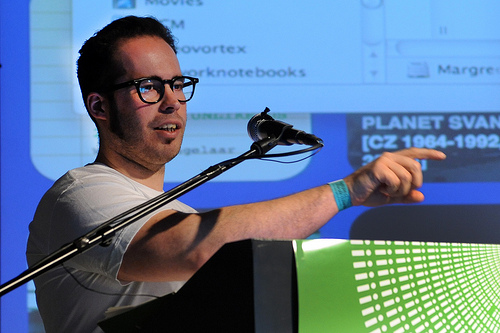


A New Kind of Candidate
Imagine this: A new political candidate who cannot lie, who listens directly to voters, and who always has fresh ideas. The catch? They’re an AI. Once just science fiction – the subject of TV shows like Black Mirror – researchers in New Zealand are developing an artificial intelligence that they hope can (and will) run for elected office. This AI is called the Semantics Analysis Machine, or SAM, and if you’re a New Zealander, she wants to speak with you.
SAM was unveiled last November and has since been talking to voters in order to improve her speech, as well as to better gauge public opinions regarding the issues she would run on. The intention is to create a politician that cannot lie, forget information, and will create a platform through crowdsourcing. Currently SAM’s creators are exploring how (and if) voters will engage with an AI politician, and use their findings to further develop the software. SAM’s developers have announced their desire to field her as a candidate in New Zealand’s 2020 general election.
AIWS was established to consider the intersection between AI technology and public policy. With developments such as SAM, it seems that one day soon we won’t just be making policy for AI – they might be making policy for us.
We are very excited to announce that one of SAM’s co-creators, Walter Langelaar, will be speaking at our 2018 BGF-G7 Summit Conference and, going forward, will work with us to develop standards for AI politicians.
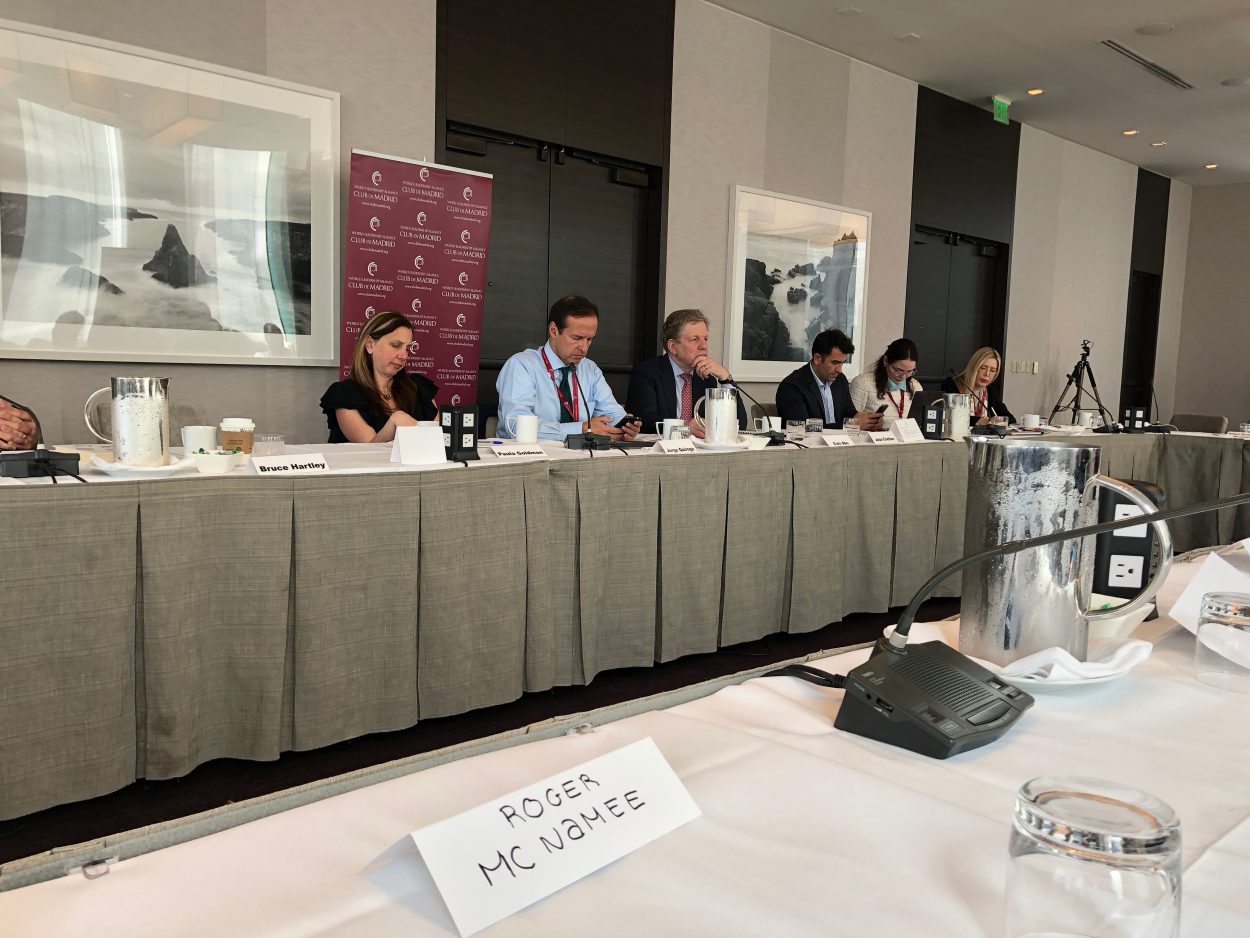
AIWS and Next Generation Democracy


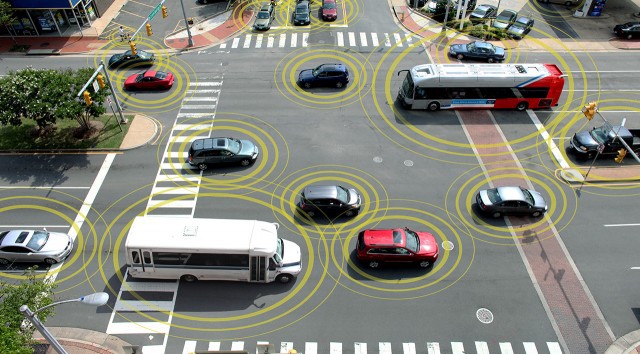
USDOT Preparing for Future of Self-Driving Cars

With automated driving technology getting closer to taking the streets, the U.S. Department of Transportation (USDOT) is reconsidering its own rules and regulations. This new technology will make many current traffic laws obsolete, which USDOT acknowledges. “Right now there are too many outdated transportation rules, terms and concepts that no longer apply to an automated world,” Transportation Secretary Elaine Chao said this past January.
USDOT and National Highway Traffic Safety Administration (NHTSA) are looking for ways to remove regulatory barriers to automated driving systems and self-driving cars. They are also looking for public feedback on the matter, and plan to host “listening sessions” to hear from the industry and the public. Along with basic passenger vehicles, automated trucks, taxis, and more might be road-ready soon. The NHTSA has also released their own online guide to what self-driving cars mean for traffic laws and safety, which you can read here.
This initiative is part of a growing conscious within the U.S. government about the growing potential of AI technology and innovation. This past December, HR 4625: The Future of Artificial Intelligence Act, was introduced in Congress. AIWS was established to consider the intersection between AI technology and public policy. As such, we are watching developments like HR 4625 and USDOT’s rule revisions with a keen interest.
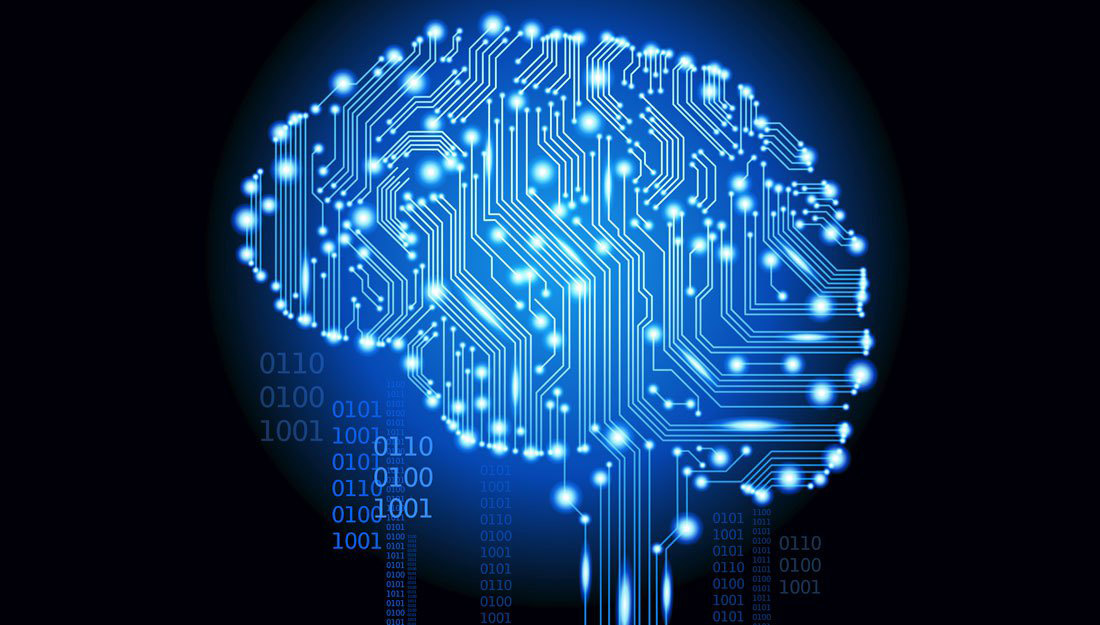
Teaching AI Common Sense

Paul Allen, co-founder of Microsoft, just announced a new multi-million dollar research initiative to teach artificial intelligence “common sense.” His initiative is called Project Alexandria and is geared toward creating a central database of knowledge for AI. In the Project’s own words:
“Common sense represents one of the most fundamental and difficult problems for AI today – while AI has advanced dramatically in the past decade, there are still many things it cannot do, such as unstructured problem-solving or managing unanticipated situations.”
AI has expanded into our homes and smartphones, beaten our top chess and Go players, and more. At the same time, it is unable to thoroughly explain its actions, make judgement calls, or even in many cases grasp basic concepts like object permanence. Research like Allen’s hopes to correct that.
Can teaching machines and AI “common sense” minimize the risks they might pose to mankind? AIWS partners with leaders and thinkers from organizations such as MIT, Google, Harvard, Minds.com, VietnamNet, and more in our efforts to answer questions like these.
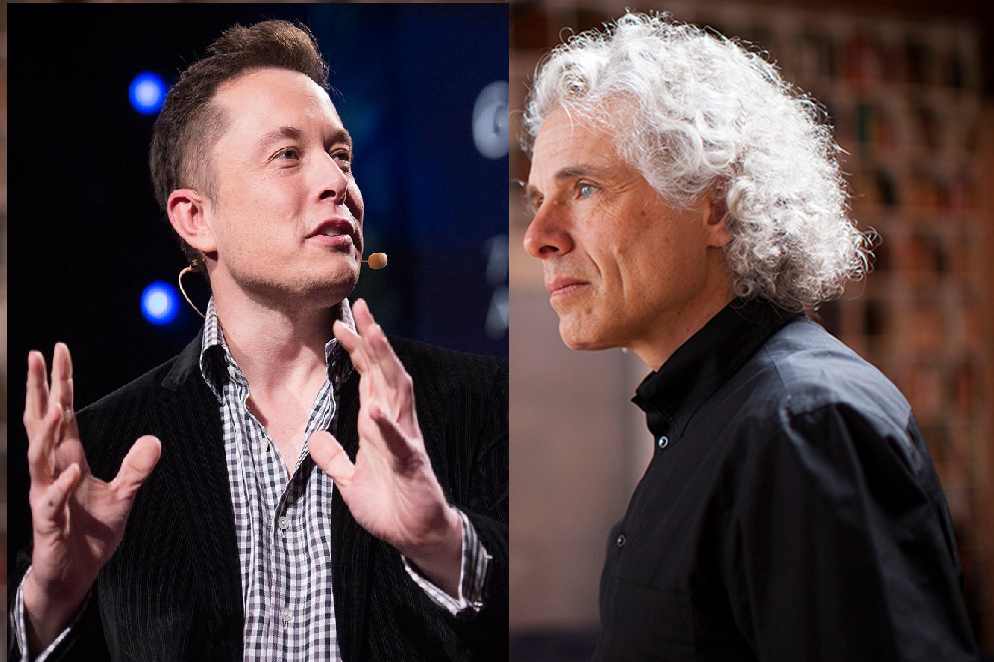
Musk and Pinker Disagree on Threat Posed by AI
Last week, a brief feud erupted between two of the brightest thinkers on the topic of human progress: Harvard psychologist Steven Pinker and tech CEO Elon Musk. It began with a recent interview of Pinker in Wired (for his new book Enlightenment Now), where he said that, “if Elon Musk was really serious about the AI threat he’d stop building those self-driving cars, which are the first kind of advanced AI that we’re going to see.” This was in response to a past comment by Musk that AI is one of the greatest existential threats to humanity currently.
In a tweet, Musk responded: “Wow, if even Pinker doesn’t understand the difference between functional/narrow AI (eg. car) and general AI, when the latter *literally* has a million times more compute power and an open-ended utility function, humanity is in deep trouble.” Elon Musk’s car company Tesla is currently researching self-driving cars, and because of this Musk has stepped down from OpenAI, citing this conflict of interest.
Wow, if even Pinker doesn’t understand the difference between functional/narrow AI (eg. car) and general AI, when the latter *literally* has a million times more compute power and an open-ended utility function, humanity is in deep trouble
— Elon Musk (@elonmusk) February 27, 2018
This is just one of the more public examples of an ongoing and serious debate throughout the tech sector: is the technology we’re developing an existential threat? And what defines AI in the first place? This was the subject of a recent talk by Max Tegmark, author of Life 3.0, who himself has dedicated much to answering these questions.
Although the brief spat between Pinker and Musk seems to have simmered down, the question at its core remains. AIWS was founded to answer questions such as these. Recognizing the potential dangers of AI and related technology, we bring together leaders and researchers to discuss ideas on how to make sure it benefits society.
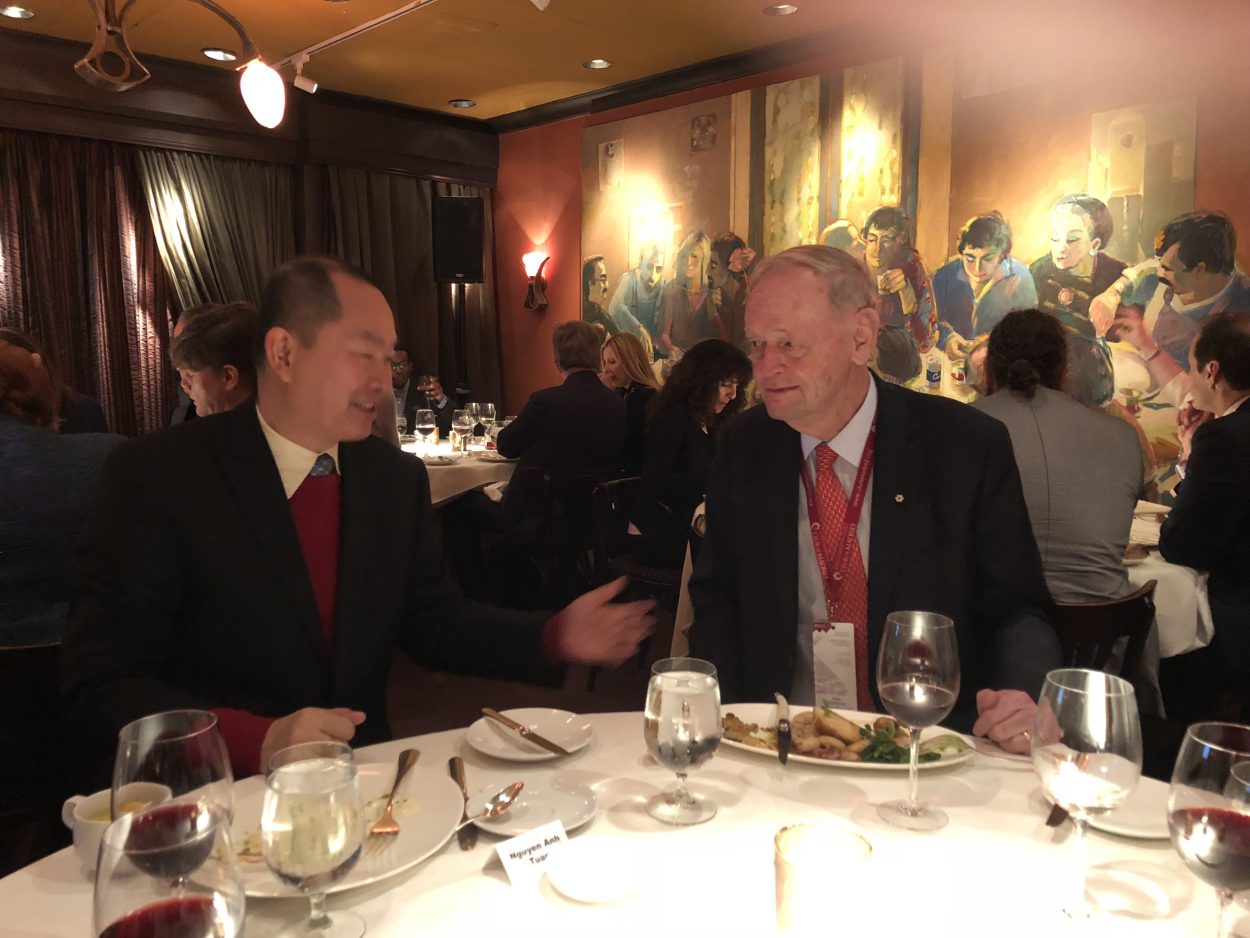
CEO of The Boston Global Forum Calls for Use of AI to Build Next Generation Democracy at Club de Madrid’s World Leadership Alliance-North American Roundtable in San Francisco

Tuan Nguyen, CEO of the Boston Global Forum, a Boston-based think tank aimed at reducing international conflict, addressed world leaders at the recent Club de Madrid roundtable held in San Francisco.
Club de Madrid membership is made up exclusively of former prime ministers and presidents of the world’s democracies. These government leaders and heads of state were taking part in the Next Generation Democracy process whose objective is to trigger debate on ways help today’s democracies meet the expectations and needs of their citizens, preserving their rights and dignity as well as securing a sustainable future for generations to come.
Nguyen, who spearheaded Boston Global Forum’s Artificial Intelligence World Society (AIWS) project briefed the former government and corporate leaders at the event on the developing role and influence artificial intelligence has on society. He called for well-meaning citizens of the world to develop an ethical framework for advancement in and deployment of Artificial Intelligence. He urged the Club de Madrid delegates together with leaders of Facebook, Google, Microsoft and Apple, as well as scholars from Harvard, MIT, Stanford, Berkeley, Cambridge, Oxford to work toward building the Next Generation Democracy based on AIWS ethical principles.
Regarding the AIWS-Artificial Intelligence Initiative for Humanity, Nguyen explained, “Artificial Intelligence (AI) is changing the world we live in, from work to recreation, from healthcare to education, from governance to social interaction. AI applications are growing in number and usefulness, as the technology works its way into nearly every aspect of our lives.
“With this in mind, we created AIWS as a pioneering initiative of the Michael Dukakis Institute for Leadership and Innovation and the Boston Global Forum. Our goal is to foster informed thinking about AI so that it can contribute to the good of society—now and well into the future.” Details on AIWS.
He added, “The unpredictability of the Internet, computer operating systems, networks, and computer applications have often led to cybersecurity failures. AI’s impact on society suggests a need to establish technical standards, institutions, and norms to ensure AI’s safe implementation within an ethical framework.”
Delegates were welcomed by Vaira Vike-Freiberga, president of WLA-Club de Madrid, and President of Latvia from 1999 to 2007, and John Battelle, EIC & CEO, NewCo. Among the members participant were Jean Chretien and Kim Campbell former prime ministers of Canada, Esko Aho, former prime minister of Finland, and Jorge Quiroga, former president of Bolivia.
The AIWS initiative was created by the Michael Dukakis Institute for Leadership and Innovation. working in concert with the Boston Global Forum.
Founded in 2012, The Boston Global Forum (BGF) is a not-for-profit think tank based in Boston, Massachusetts. Our mission is to bring together, in an open and accessible public forum, an eclectic and engaging spectrum of esteemed academic leaders, real-world experts, thought leaders, media experts and promising young leaders, who are dedicated to seeking peaceful solutions to the most contentious issues of our times.
As an offshoot of The Boston Global Forum, The Michael Dukakis Institute for Leadership and Innovation (MDI) was born in 2015 with the mission of generating ideas, creating solutions, and deploying initiatives to solve global issues, especially focused on Cybersecurity and Artificial Intelligence

Ban Ki-Moon Takes New Leadership Role in Sustainable Development

Former UN Secretary General Ban Ki-Moon was appointed President and Chair of the Global Green Growth Institute (GGGI) last week. His appointment was agreed upon unanimously by the GGGI Assembly. In this new role, he will help lead the GGGI in its mission to reduce greenhouse gas emissions, increase access to sustainable resources and green jobs, and adapt to global climate change. During his tenure as UN Secretary general, Dr. Ban coordinated a number of sustainable development efforts, the best-known being the UN’s Sustainable Development Goals (SDGs).
Dr. Ban Ki-Moon was the 2016 recipient of our World Leader for Peace, Security, and Development Award. Read his acceptance message here. BGF, MDI, and AIWS are proud to work with leaders like Dr. Ban. Humanity is facing a number of challenges this century, whether it be ensuring that our children have access to clean water and air, or that new technology is utilized in responsible, controlled ways. The Artificial Intelligence World Society, Boston Global Forum, and Michael Dukakis Institute will continue to work with leaders like Dr. Ban to consider these challenges and more.
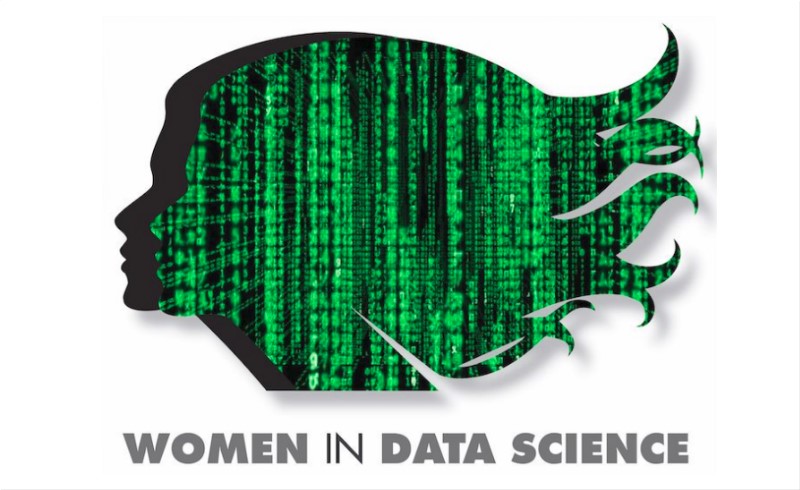
Women in Data Science Conference at Harvard

This Monday, March 5th, the Women in Data Science (WiDS) Conference will be held at Harvard University. This conference was founded to educate and connect data scientists, and especially to empower women in the field. This event is open to the public and will be jointly hosted by Harvard, MIT, and Microsoft. At the same time, another WiDS conference will be taking place across the country at Stanford University. You can follow that conference via their livestream here.
In April, Boston Global Forum – Michael Dukakis Institute will host a major conference of our own – our annual BGF-G7 Summit Conference. There we will announce the first part of our Ethical Framework for AI and announce our first-ever World Leaders in AI Awards.